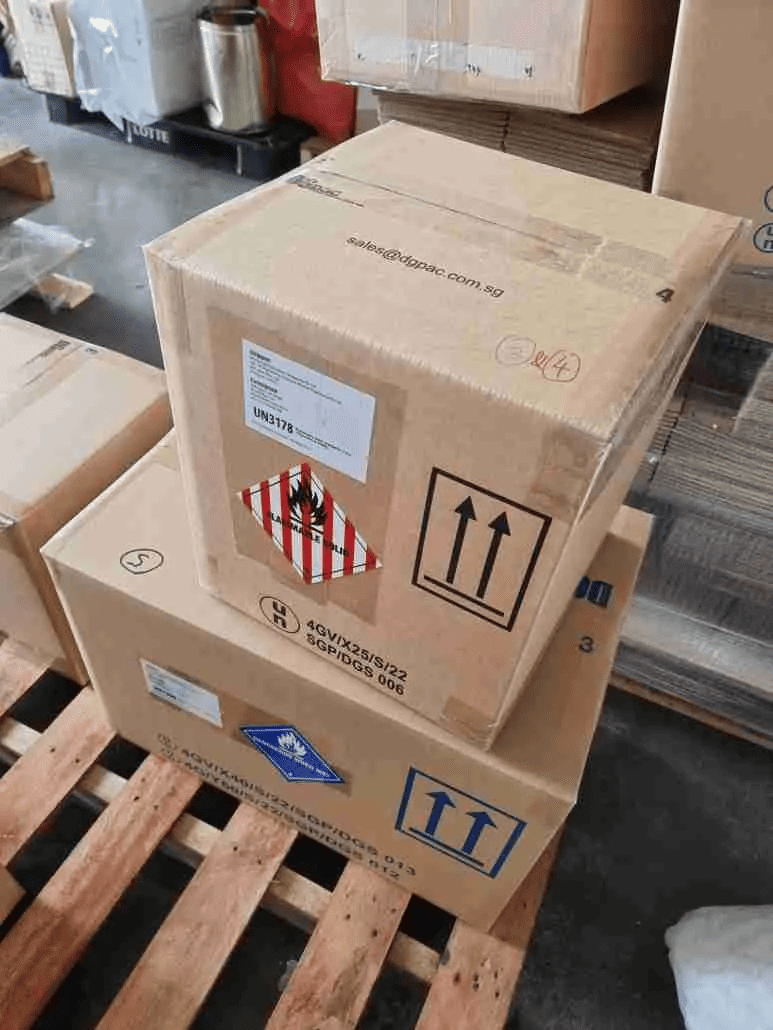
Freight News
Ensuring Secure International Shipments for U.S. Businesses

In today’s global market, U.S. businesses often rely on international shipping to reach new customers and expand their market presence. However, transporting goods across borders comes with its own set of challenges, particularly when it comes to ensuring the security of these shipments. This article explores key strategies and best practices that businesses can employ to ensure secure international shipments.
Understanding Transport Security
Transport security is essential for protecting goods from theft, damage, and other risks during transit. It involves a range of measures that help safeguard shipments from the moment they leave the warehouse to when they arrive at their destination.
The Importance of Secure Logistics
Secure logistics plays a crucial role in maintaining the integrity of international shipments. It involves planning and implementing security measures at every stage of the shipping process, from packaging and labeling to transportation and delivery. By focusing on secure logistics, businesses can minimize risks and protect their valuable assets.
Common Threats to International Shipments
To effectively secure international shipments, it’s important to understand the common threats they face. These include:
- Theft and Pilferage: Goods in transit are vulnerable to theft, especially high-value items.
- Tampering and Counterfeiting: Unauthorized access to shipments can result in tampering or counterfeiting of products.
- Damage and Loss: Rough handling, accidents, and natural disasters can lead to damage or loss of shipments.
- Regulatory Non-Compliance: Failing to comply with international shipping regulations can result in fines and delays.

Best Practices for Ensuring International Shipments Security
Implementing Robust Packaging Solutions
Secure packaging is the first line of defense against damage and tampering. Businesses should invest in high-quality materials and techniques, such as tamper-evident seals and reinforced packaging, to protect their shipments.
Leveraging Technology for Tracking and Monitoring
Technology has revolutionized the way we track and monitor shipments. GPS tracking systems, RFID tags, and IoT devices allow businesses to monitor their shipments in real-time, providing valuable insights into their location and condition.
Partnering with Reliable Logistics Providers
Choosing the right logistics partner is crucial for ensuring secure international shipments. Businesses should work with reputable providers that have a proven track record of security and reliability. It’s important to assess their security measures, insurance coverage, and compliance with international regulations.
Conducting Risk Assessments and Security Audits
Regular risk assessments and security audits can help businesses identify vulnerabilities in their shipping processes and implement necessary improvements. By staying proactive, companies can better protect their shipments from potential threats.
Navigating International Shipping Regulations
Understanding and complying with international shipping regulations is essential for ensuring secure shipments. Different countries have varying rules and requirements, and businesses must stay informed to avoid fines and delays.
Key Regulations to Consider
- Customs Documentation: Accurate and complete documentation is essential for smooth customs clearance.
- Import and Export Controls: Businesses must comply with both U.S. and foreign import/export regulations.
- Product-Specific Regulations: Some products, such as hazardous materials, have specific shipping requirements.
Staying Updated on Regulatory Changes
International shipping regulations are constantly evolving. Businesses should regularly review and update their shipping processes to ensure compliance with the latest requirements. This may involve working with legal advisors or consultants who specialize in international trade.

The Role of Insurance in International Shipments Security
Shipping insurance is an important aspect of secure international shipments. It provides financial protection against loss or damage, giving businesses peace of mind throughout the shipping process.
Types of Shipping Insurance
- Cargo Insurance: Covers loss or damage to goods during transit.
- Liability Insurance: Protects against claims for damages or injuries caused by the shipment.
- Marine Insurance: Specifically for goods transported by sea, covering a range of perils.
Choosing the Right Insurance Coverage
Businesses should carefully evaluate their shipping needs and choose insurance coverage that aligns with their risk profile. This may involve consulting with insurance professionals to determine the best options for their specific shipments.
Conclusion
Ensuring secure international shipments is a complex but essential task for U.S. businesses operating in the global marketplace. By implementing robust security measures, leveraging technology, understanding regulations, and securing appropriate insurance coverage, companies can protect their shipments and maintain customer trust. As international shipping continues to grow, prioritizing security will be key to sustaining success in the global economy.
Revolutionize Your Shipping with Express Freight Management!
Take the next step in optimizing your shipping logistics by partnering with Express Freight Management. With their expertise in international shipping, cutting-edge technology, and commitment to security, Express Freight Management can help streamline your processes and safeguard your shipments. Ensure efficient and secure delivery of your goods across global markets. Contact Express Freight Management today to learn more about how they can support your business’s success in the international arena.
